Did you know that pumpkin leaves are not only delicious but also incredibly nutritious? Packed with vitamins, minerals, and antioxidants, these vibrant green leaves offer a range of health benefits that can boost your well-being. Whether you’re cooking with pumpkin leaves or incorporating them into your diet, you’ll be amazed by the positive impact they can have on your health. Let’s explore the many reasons why pumpkin leaves deserve a spot on your plate.
When it comes to dietary choices, it’s always exciting to discover the hidden gems that can enhance our well-being. Pumpkin leaves are one such gem. Rich in vitamins A, C, and E, as well as minerals like iron, calcium, and potassium, pumpkin leaves offer a nutritional powerhouse that can support your overall health. So why not give these crunchy and flavorful leaves a try?
Key Takeaways:
- Pumpkin leaves are packed with vitamins, minerals, and antioxidants.
- They are a great source of vitamins A, C, and E, as well as minerals like iron, calcium, and potassium.
- Incorporating pumpkin leaves into your diet can promote heart health, support the immune system, and aid in weight loss.
- You can enjoy pumpkin leaves in various recipes, such as soups, stews, and salads.
- Adding pumpkin leaves to your meals is a delicious and nutritious way to enhance your overall well-being.
Appearance and Nutritional Value of Pumpkin Leaves
Pumpkin leaves are not only nutritious but also visually appealing. They have large, round and lobed shapes with serrated edges, making them easily recognizable in your garden or at the grocery store. The leaves can vary in color, ranging from yellowish and light green to greyish-green.
But it’s not just their appearance that makes pumpkin leaves special. They are packed with a wide array of nutrients that can contribute to a healthy diet. Let’s take a closer look at the nutritional value of pumpkin leaves:
| Nutrient | Amount per 100g |
|---|---|
| Carbohydrates | 3.6g |
| Protein | 3.2g |
| Total Fat | 0.4g |
| Calcium | 276mg |
| Zinc | 1.2mg |
| Manganese | 0.2mg |
| Phosphorus | 54mg |
| Iron | 1.6mg |
| Vitamin B6 | 0.07mg |
| Vitamin B3 | 0.5mg |
| Vitamin C | 30mg |
| Vitamin A | 1930IU |
Pumpkin leaves are also low in calories, making them a great choice for those who are conscious of their calorie intake. Plus, they are rich in essential minerals like calcium, zinc, manganese, and iron, which are vital for various bodily functions.
Benefits of Pumpkin Leaf Nutrition
The nutritional composition of pumpkin leaves contributes to their numerous health benefits. They provide vitamins and minerals necessary for maintaining overall health and well-being. The vitamins, particularly vitamin A and vitamin C, act as antioxidants, protecting the body against cellular damage caused by harmful free radicals.
“The nutritional value of pumpkin leaves makes them a nutritious addition to any diet, providing a wide range of essential nutrients.”
The high calcium content in pumpkin leaves helps to maintain strong and healthy bones, while the iron content supports the production of red blood cells. Pumpkin leaves are also a good source of dietary fiber, promoting healthy digestion and regular bowel movements.
Incorporating pumpkin leaves into your meals is an excellent way to boost your nutrient intake and support your overall health.
Medicinal Value and Health Benefits of Pumpkin Leaves
Pumpkin leaves offer a wide range of medicinal properties and health benefits that contribute to overall well-being. Their natural compounds and nutrients provide various therapeutic effects, making them a valuable addition to your diet.
Consuming pumpkin leaves as a warm liquid can help reduce fever and treat intestinal parasites, thanks to their potent anti-inflammatory and antimicrobial properties.
“Pumpkin leaves have been used for centuries as a traditional remedy to combat fever and promote gut health.”
Applying a paste made from pumpkin leaves has shown promising results in treating skin conditions like acne, thanks to their antimicrobial and skin-soothing properties.
The health benefits of pumpkin leaves extend beyond their external applications. They promote heart health by reducing cholesterol absorption and preventing irregular heartbeat, reducing the risk of cardiovascular diseases.
Pumpkin leaves can also help alleviate symptoms of rheumatoid arthritis, thanks to their anti-inflammatory compounds. Their consumption can reduce pain, swelling, and joint stiffness, improving overall joint comfort.
“Adding pumpkin leaves to your diet may help lower symptoms of rheumatoid arthritis and improve joint health.”
For women, pumpkin leaves can be particularly beneficial in helping alleviate premenstrual syndrome (PMS) symptoms. Their rich nutrients and phytochemicals can help regulate hormonal imbalances and reduce common PMS symptoms like mood swings, bloating, and fatigue.
Additionally, pumpkin leaves contribute to dental health by promoting oral hygiene. The natural compounds found in these leaves help combat bacteria responsible for dental plaque and cavities, aiding in maintaining a healthy and bright smile.
Not only do pumpkin leaves help strengthen bones due to their high calcium content, but they also contribute to overall bone health by ensuring optimal mineral absorption and bone density.
Research suggests that the consumption of pumpkin leaves may help fight colon cancer. The antioxidants and fiber present in these leaves assist in cleansing the colon, reducing inflammation, and preventing the growth of cancer cells.
“Including pumpkin leaves in your diet can support a healthy colon and reduce the risk of colon cancer.”
The immune system also benefits from the consumption of pumpkin leaves. Their high content of vitamins A, C, and E, along with essential minerals, supports immune function, helping to fight off infections and diseases.
Among the numerous health benefits, pumpkin leaves nourish the skin, providing a supple and soft texture. Their vitamin-rich composition and antioxidants help protect the skin from damage caused by environmental factors, promoting a youthful and radiant appearance.
Consuming pumpkin leaves regularly has been linked to a reduced risk of chronic diseases such as obesity, diabetes, and cardiovascular conditions. Their nutritional profile and antioxidant activity contribute to improved overall health and well-being.
“Pumpkin leaves are a valuable addition to your diet, providing a wide range of health benefits and reducing the risk of chronic diseases.”
Lastly, pumpkin leaves can aid in weight loss. Their low calorie and high fiber content promote a feeling of fullness, reducing appetite and calorie intake. Incorporating them into a balanced diet can support healthy weight management.
With their extensive range of medicinal value and health benefits, pumpkin leaves are a natural powerhouse that can enhance your overall wellness. Make the most of these nutrient-packed leaves by including them in your favorite dishes and reaping the rewards of their remarkable properties.
Pumpkin Leaves in Pregnancy
During pregnancy, it is essential to prioritize nutrition for the well-being of both the mother and the developing fetus. Pumpkin leaves are a wonderful addition to a pregnant woman’s diet, providing a range of benefits to support a healthy pregnancy.
One of the notable advantages of consuming pumpkin leaves during pregnancy is their high fiber content. Fiber plays a crucial role in regulating digestion and preventing constipation, a common discomfort experienced by many pregnant women. Including pumpkin leaves in your meals can help ensure smooth and regular bowel movements, promoting digestive health.
In addition to fiber, pumpkin leaves are also rich in folate, a vital nutrient for neural development in the fetus. Folate plays a crucial role in preventing neural tube defects and supporting the growth of the baby’s brain and spinal cord. By incorporating pumpkin leaves into your diet, you can naturally boost your folate intake and support the healthy development of the baby’s nervous system.
Pumpkin leaves also provide a good source of protein, which is necessary for muscle repair and function, benefiting both the expectant mother’s body and the growing baby’s development. Protein is essential for the production of new cells and tissues, contributing to the healthy growth and development of the fetus. Including pumpkin leaves in meals can help ensure an adequate intake of protein during pregnancy.
It’s important to remember that each pregnancy is unique, and dietary choices should be made in consultation with healthcare professionals. While pumpkin leaves offer numerous health benefits, it’s essential to consider individual dietary needs and potential allergies or sensitivities.
Enjoy the goodness of pumpkin leaves in your meals during pregnancy to support optimal nutrition and promote a healthy pregnancy journey.
Safe and Healthy Pregnancy Tips:
- Consult with your healthcare provider or a registered dietitian to create a personalized nutrition plan for a healthy pregnancy.
- Choose a variety of nutrient-rich foods, including fruits, vegetables, lean proteins, whole grains, and dairy products.
- Stay hydrated by drinking plenty of water throughout the day.
- Engage in regular physical activity approved by your healthcare provider to support overall well-being and promote a healthy pregnancy.
- Get adequate rest and prioritize self-care to manage stress and promote a positive pregnancy experience.
- Attend prenatal appointments and follow recommended prenatal vitamins and supplements as advised by your healthcare provider.
Can You Eat Pumpkin Leaves?
Yes, pumpkin leaves are edible and can be enjoyed in various ways. They are commonly used in dishes like soups, stews, curries, and salads. Pumpkin leaves are versatile and can be cooked with other vegetables or as a standalone dish. They have a unique flavor that is similar to spinach, broccoli, and green beans.
When it comes to culinary uses, pumpkin leaves offer a range of possibilities. Their tender leaves can be cooked to create delicious and nutritious meals. Whether added to soups and stews to enhance flavors or used as a base for salads, pumpkin leaves bring a distinct taste and texture to the table.
Traditional Uses of Pumpkin Leaves
In many cultures, pumpkin leaves are a staple ingredient in traditional recipes. For example, in African cuisine, pumpkin leaves are commonly used to prepare dishes like egusi soup. The leaves are simmered with melon seeds, spices, and other ingredients to create a rich and flavorful soup that is enjoyed with fufu or rice.
In African cuisine, pumpkin leaves are commonly used to prepare dishes like egusi soup.
Pumpkin leaves are also popular in Asian cooking. In countries like India and Sri Lanka, these leaves are used to make curries and stir-fries. The leaves are known for their ability to absorb flavors, making them an excellent addition to spicy and aromatic dishes.
Not only are pumpkin leaves tasty, but they also offer a range of health benefits. They are a good source of vitamins, minerals, and antioxidants, making them a nutritious choice for any diet.
Benefits of Eating Pumpkin Leaves
Here are some of the key benefits of incorporating pumpkin leaves into your meals:
- Nutrient-rich: Pumpkin leaves are packed with essential vitamins and minerals, including vitamin A, vitamin C, calcium, and potassium.
- Heart-healthy: The antioxidants in pumpkin leaves can help reduce the risk of heart disease by preventing oxidative damage to the heart cells.
- Anti-inflammatory: Pumpkin leaves contain compounds that have anti-inflammatory properties, helping to reduce inflammation in the body.
- Supports digestion: The dietary fiber in pumpkin leaves promotes healthy digestion and can help prevent digestive issues like constipation.
- Boosts immune system: Pumpkin leaves are rich in antioxidants and vitamins that support a strong immune system, helping to protect against infections and diseases.
Incorporating pumpkin leaves into your diet is a delicious and nutritious way to enhance your meals and support your overall health.
Pumpkin Leaves Recipe
If you’re looking for a delicious way to incorporate pumpkin leaves into your meals, try this simple sautéed dish.
Ingredients
- Pumpkin leaves
- Onion
- Tomatoes
- Olive oil
- Peanut powder
- Your favorite seasonings
Instructions
- Chop the pumpkin leaves and set them aside.
- Sauté the onions in olive oil until they become translucent.
- Add the chopped tomatoes and cook until they soften.
- Add the pumpkin leaves and sauté for a few minutes.
- Sprinkle peanut powder and your favorite seasonings over the mixture.
- Simmer for 10 minutes.
- Serve hot and enjoy!
This flavorful recipe brings out the unique taste of pumpkin leaves and combines it with the rich flavors of onions, tomatoes, and seasonings. It’s a quick and easy way to incorporate this nutritious vegetable into your meals. The sautéed pumpkin leaves make a great side dish or can be enjoyed as a main course with rice or bread.
Taste and Cleaning of Pumpkin Leaves
When it comes to the taste of pumpkin leaves, they offer a delightful combination of flavors reminiscent of broccoli, spinach, and green beans. When cooked, the bitterness that may be present in mature pumpkin leaves fades away, and they develop a taste similar to spinach or turnip greens. Incorporating pumpkin leaves into your recipes can add a unique and delicious element to your meals.
Now, let’s talk about how to clean pumpkin leaves to ensure they are ready for cooking. Cleaning pumpkin leaves is essential to remove any dirt, debris, or pests that may be present. Here’s a simple step-by-step guide to cleaning pumpkin leaves:
- Fill a clean sink or basin with cool water.
- Place the pumpkin leaves in the water and gently swish them around to dislodge any dirt or debris.
- Inspect each leaf individually, paying attention to the underside and stems, and remove any visible dirt or pests.
- Rinse the leaves under running water to ensure all dirt and debris are washed away.
Follow these steps, and your pumpkin leaves will be clean, fresh, and ready to be incorporated into your favorite recipes.
Nutritional Composition of Pumpkin Leaves
Pumpkin leaves are a powerhouse of nutrition, containing a wide range of vitamins, minerals, and antioxidants. Incorporating these leaves into your diet can provide numerous health benefits and support overall well-being.
Vitamins: Pumpkin leaves are abundant in vitamins A, C, and E. Vitamin A plays a crucial role in maintaining healthy vision, supporting immune function, and promoting the growth and development of cells and tissues. Vitamin C is essential for collagen synthesis, a protein that helps in wound healing, and it also acts as a powerful antioxidant, protecting your cells from damage. Vitamin E is known for its antioxidant properties and is essential for maintaining healthy skin, eyes, and immune function.
Minerals: These leaves are also packed with essential minerals like iron, calcium, and potassium. Iron is needed for the production of red blood cells, while calcium is essential for strong bones and teeth. Potassium plays a vital role in maintaining fluid balance, regulating blood pressure, and supporting proper muscle and nerve function.
Dietary Fiber: Pumpkin leaves are a good source of dietary fiber, which aids in digestion, promotes feelings of fullness, and helps regulate blood sugar levels. Including fiber-rich foods in your diet can support a healthy digestive system and prevent constipation.
Antioxidants: Flavonoids, carotenoids, and phenolic compounds are antioxidants found in pumpkin leaves. These compounds help protect your cells from oxidative stress caused by free radicals and may reduce the risk of chronic diseases such as heart disease, diabetes, and certain types of cancers.
Key Nutrients in Pumpkin Leaves
Here’s a breakdown of the key nutrients present in pumpkin leaves per 100 grams:
| Nutrient | Amount |
|---|---|
| Calories | 20 |
| Carbohydrates | 3.7 grams |
| Protein | 2.2 grams |
| Total Fat | 0.1 grams |
| Vitamin A | 6740 IU |
| Vitamin C | 141.7 milligrams |
| Vitamin E | 0.8 milligrams |
| Calcium | 43 milligrams |
| Iron | 1.1 milligrams |
| Potassium | 438 milligrams |
| Dietary Fiber | 1.9 grams |
These values may vary slightly depending on the specific variety of pumpkin leaves and their maturity.
With their impressive nutritional composition, pumpkin leaves provide a delicious and convenient way to boost your intake of vitamins, minerals, fiber, and antioxidants. Include pumpkin leaves in your meals to enhance the nutritional content and enjoy their many health benefits.
Harvesting and Storage of Pumpkin Leaves
When it comes to enjoying the fresh taste and health benefits of pumpkin leaves, harvesting them from your own garden is the way to go. To ensure the best flavor and texture, it’s best to pick younger leaves. Here’s how to harvest pumpkin leaves:
- Locate the desired leaf and fold its stem in half.
- Gently snap the stem, ensuring the fibers remain intact.
- With a gentle pull, separate the stem from the leaf.
Now that the pumpkin leaves are harvested, it’s important to clean them properly before consuming. Treat them just like you would lettuce, washing them thoroughly under running water to remove any dirt or pests.
After cleaning, there are a couple of different options for storing pumpkin leaves:
- For short-term storage, wrap the leaves in a paper towel to absorb excess moisture. Place them in an airtight container and store them in the refrigerator. This method should keep the leaves fresh for a few days.
- If you want to store the leaves for a longer period, consider slicing and dehydrating them. Once dried, store them in an airtight container at room temperature or in the freezer. This method allows you to enjoy pumpkin leaves even when they are out of season.
Harvesting and storing pumpkin leaves ensures that you always have a fresh supply on hand, ready to be used in your favorite recipes.
| Method | Storage Duration |
|---|---|
| Refrigeration | A few days |
| Dehydration | Several months |
Summing Up on Pumpkin Leaves
Pumpkin leaves are a nutritious and versatile vegetable with numerous health benefits. They are rich in vitamins, minerals, dietary fiber, and antioxidants. Consuming pumpkin leaves can promote heart health, reduce symptoms of rheumatoid arthritis, alleviate premenstrual syndrome, support the immune system, and aid in weight loss. With their unique flavor, they can be incorporated into various recipes, such as soups, stews, and salads. Adding pumpkin leaves to your diet is a great way to enhance your overall well-being.
The Nutritional Composition of Pumpkin Leaves
| Nutrient | Amount per 100g |
|---|---|
| Vitamin A | 3800 IU |
| Vitamin C | 45 mg |
| Vitamin E | 1.06 mg |
| Iron | 1.8 mg |
| Calcium | 23 mg |
| Potassium | 430 mg |
| Dietary Fiber | 5 g |
| Antioxidants | Flavonoids, carotenoids, phenolic compounds |
As shown in the table above, pumpkin leaves are packed with essential vitamins and minerals. They are particularly high in vitamin A, vitamin C, and potassium. Vitamin A supports healthy vision and immune function, while vitamin C promotes collagen production and boosts the immune system. Potassium helps regulate blood pressure and maintain heart health. Additionally, pumpkin leaves contain antioxidants that help protect the body against harmful free radicals.
Conclusion
Pumpkin leaves are a true nutritional powerhouse, offering a wide range of health benefits. Their high nutritional value, packed with vitamins, minerals, dietary fiber, and antioxidants, makes them an excellent addition to a healthy diet. By incorporating pumpkin leaves into your meals, you can support heart health, reduce inflammation, boost the immune system, aid in weight management, and enjoy various other benefits.
Whether you prefer them in soups, stews, or salads, pumpkin leaves bring a unique and nutritious element to your culinary creations. Their versatility allows for countless delicious recipes that can suit any taste preference. Embrace the incredible health benefits of pumpkin leaves and discover a healthier, more vibrant life.
So why wait? Start introducing pumpkin leaves into your diet today and harness the power of these nutrient-rich greens. Whether you’re looking to improve your overall well-being or simply add a fresh and nutritious touch to your meals, pumpkin leaves are the perfect choice. Enjoy the incredible taste and reap the myriad of benefits that pumpkin leaves have to offer. Make them a staple in your kitchen and nourish your body from the inside out.

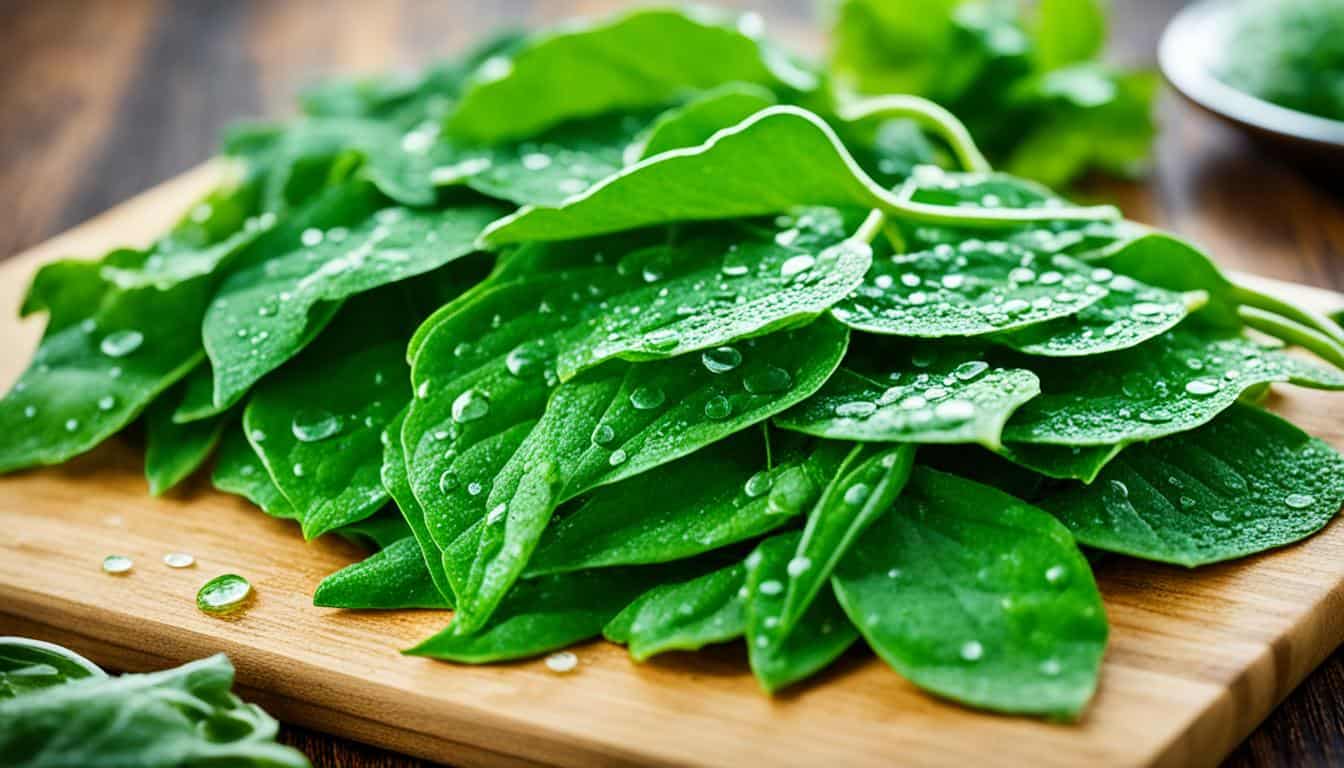
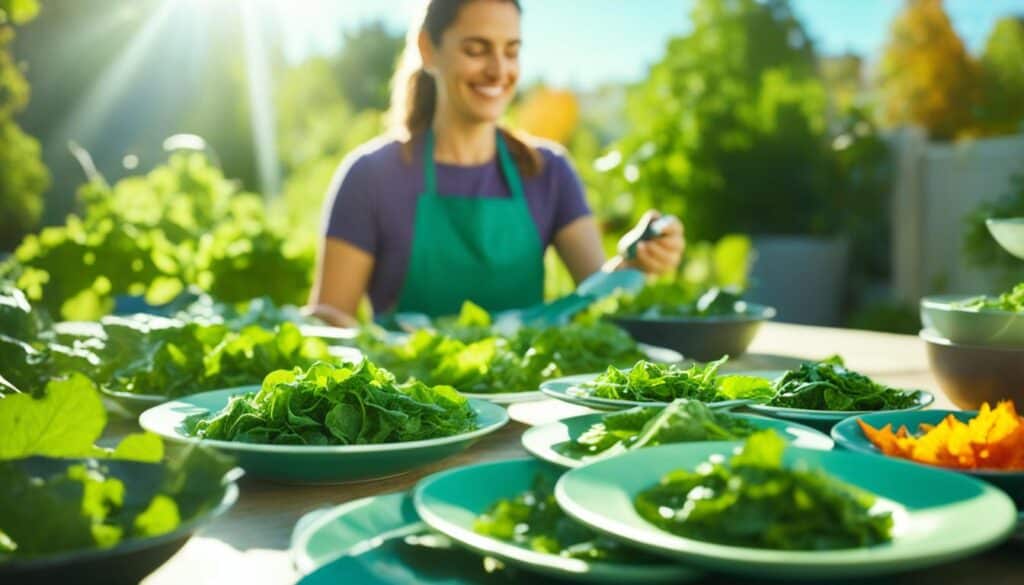
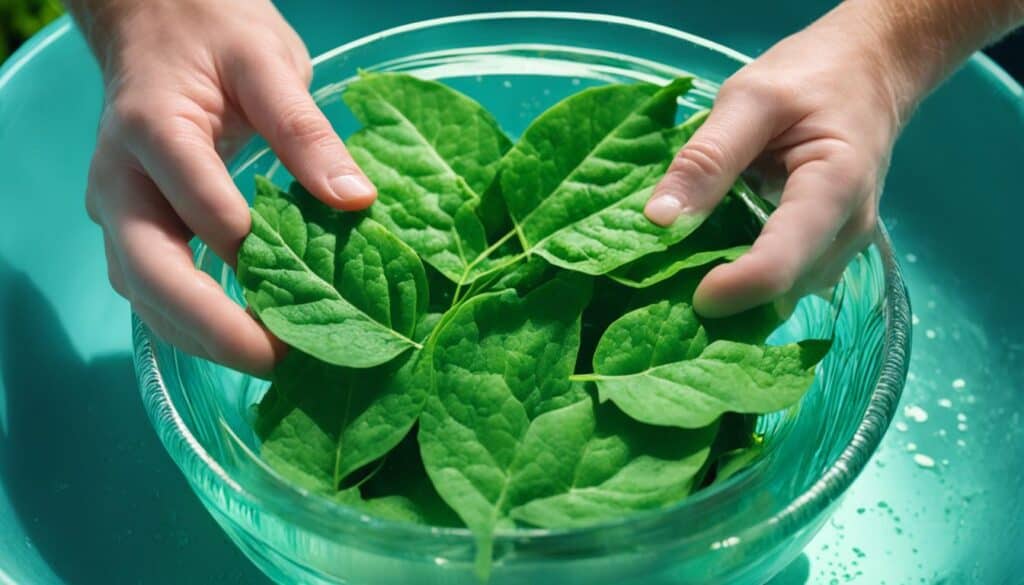
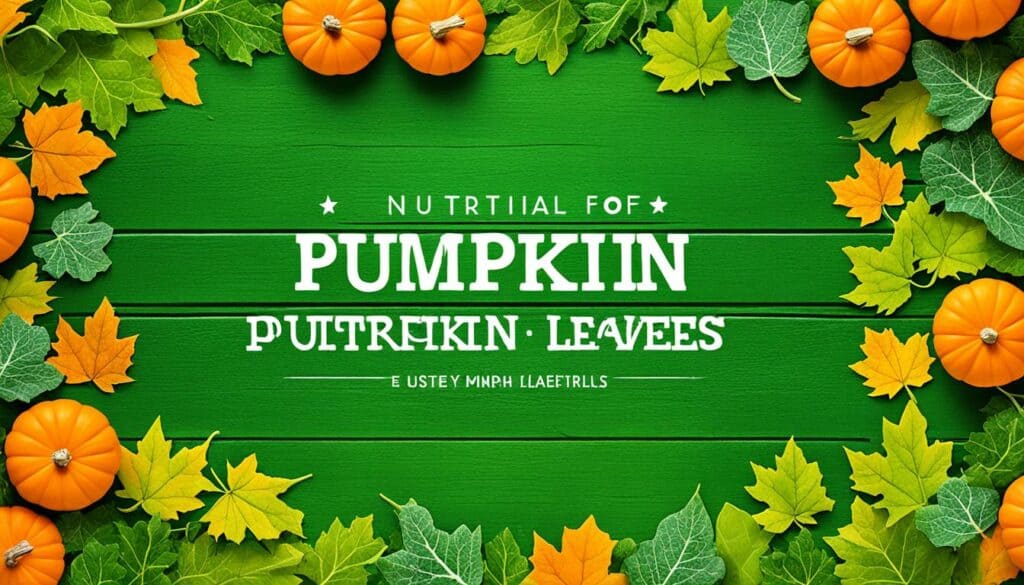
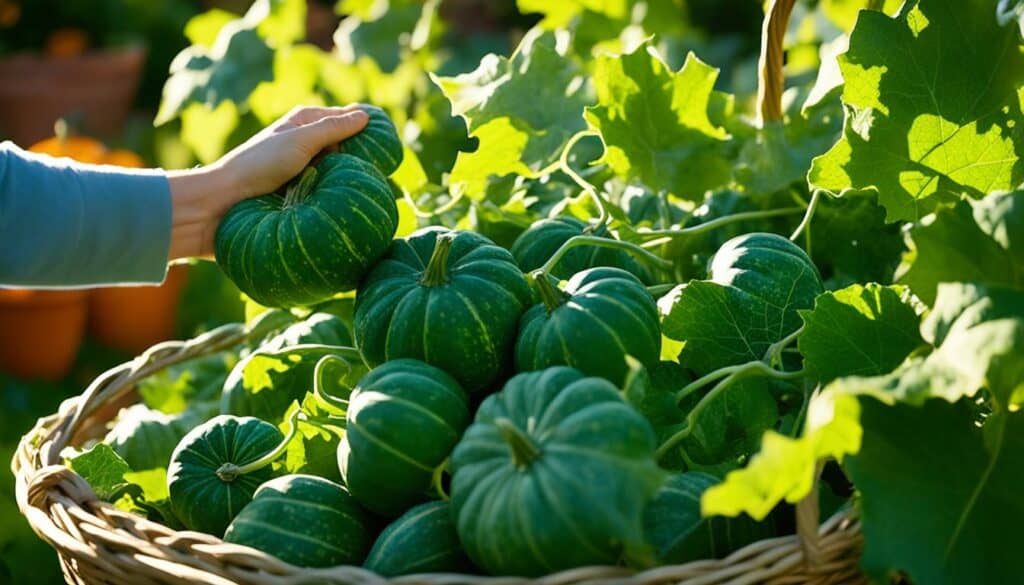
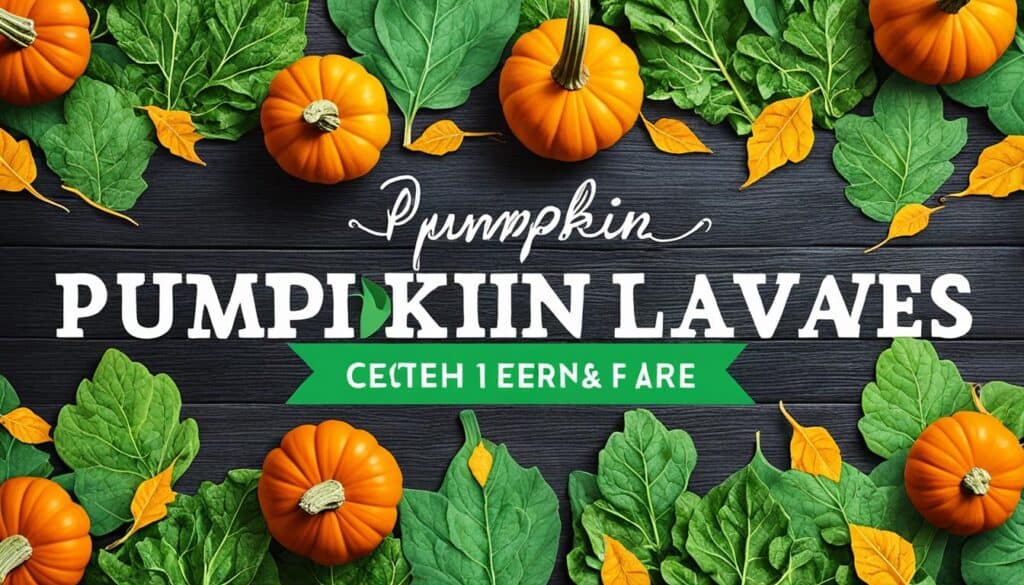



Leave a Reply